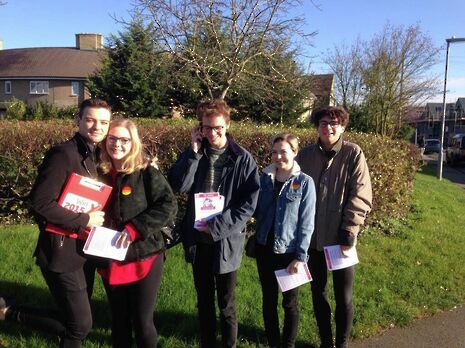Local elections: the best way to take on the Tory government?
Don’t think local elections are dull: voting is the most effective way to combat government policies in your area

I’m going to get straight to it: the myth that local elections are dull, unimportant, and concerned exclusively with minor issues only serves to bolster the political right. We hear about intense debates over 50 metres more or less of a given cycling path, and assume that this is the only kind of issue our local councils deal with.
All too often, students on the left just don’t turn out. Too many young people who are passionately opposed to inequality and oppression, who are in many other respects politically informed or involved in activism, have a blind spot where local council politics is concerned. Low student voter registration rates speak for themselves, and so does a lack of attention on social media.
It’s clear why this is the case, and in many respects, the fault doesn’t lie with students themselves. Recent, politically motivated changes to voter registration practices, and poor to non-existent political education in school, have a lot to answer for. Many students have been disenfranchised because they have dropped off the register without realising it. Many who did register were unaware that they could register to vote locally in both their university and home constituencies.
Regardless, I still think it’s fair to say that local elections are unfairly perceived as boring and inconsequential, and this contributes to low voter turnout, especially among students. Too often, local elections are framed merely as a commentary on the national parties’ chances in the 2020 general election. It’s easy to feel as if voting is just taking part in a national poll, rather than choosing your elected representatives.
But of course, choosing your elected representatives is exactly what you are doing, just as you would in a general election. Too many assume that local election results have no national impact. This has a lot to do with people forgetting that nobody in this country votes for the government; last year, Cambridge voted for Daniel Zeichner, our current Labour MP. It did not vote for Ed Miliband to be Prime Minister. It sounds obvious, but it needs saying: your vote is not tallied nationally in a general election – you only ever vote for who represents you in the area in which you live. Your vote in a local election is not the distant, weaker cousin of your general election vote.
Your general election vote can contribute to a parliamentary majority in a way your local election vote admittedly cannot, but winning control of a majority of the nation’s councils is a significant way political parties can have impact on a national level, and this is something your local vote can contribute to.
It’s not just about national power, though; it’s about the policies you want to see enacted. And there’s a powerful misconception that the chief policy concerns of local parties are decidedly uninspiring. Parking fines. Trellises. Your elderly neighbour’s disruptive cats. And yes, local politics is much more concerned with this stuff than national politics, because someone has to be. But local councils can, and do, make policy that has a powerful impact.
Remember when we thought streetlights in Cambridge were going to be switched off between midnight and 6am to save money? So many students, myself included, were rightfully incredibly concerned about the impact this could have on our safety, and the safety of others. The Tories and the Lib Dems on the County Council voted for this. Even though street lighting is the responsibility of the County Council, your Labour-run City Council negotiated a deal to keep the street-lights on. In both councils, Labour was the only party to fight to keep the lights on, and that’s what happened.
The City Council has also won a Living Wage Foundation award for being the most successful in East Anglia at promoting the real living wage amongst businesses. In spite of 40 per cent cuts to funding from central government, they have managed to pass a ‘no cuts’ budget – no small feat. This is an excellent example of a council pushing back against government policy and having a real impact. Frontline services have been protected from cuts passed down by central government, and this has happened because people turned out and voted a different local party into power.
This would not have happened had the electorate assumed that their local vote didn’t matter, or that it didn’t make a powerful enough statement against central government. If you want more representatives who will fight to ensure genuinely fair pay, who will oppose the selling off of council homes, who agree that the government’s attitude towards refugees (in Cambridge and elsewhere) is shameful and will push back against it, then don’t wait four years to vote for them. Turn out and cast your ballot on 5th May 2016.
 News / SU reluctantly registers controversial women’s soc18 December 2025
News / SU reluctantly registers controversial women’s soc18 December 2025 Features / Should I stay or should I go? Cambridge students and alumni reflect on how their memories stay with them15 December 2025
Features / Should I stay or should I go? Cambridge students and alumni reflect on how their memories stay with them15 December 2025 News / Dons warn PM about Vet School closure16 December 2025
News / Dons warn PM about Vet School closure16 December 2025 News / Cambridge study finds students learn better with notes than AI13 December 2025
News / Cambridge study finds students learn better with notes than AI13 December 2025 News / Uni registers controversial new women’s society28 November 2025
News / Uni registers controversial new women’s society28 November 2025









